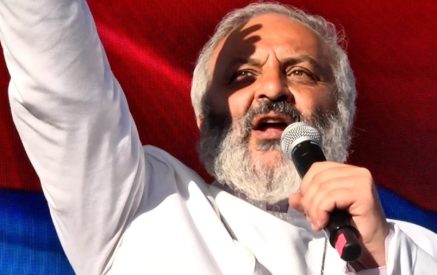The movement led by Bagrat Srbazan (Archbishop Bagrat Galstanyan) has become a major topic of discussion in the Azerbaijani press. They are covering the internal political events in Armenia with the same frequency as in our country.
In a conversation with Aravot.am, political scientist Gagik Hambaryan noted with concern that the Azerbaijani press uses similar vocabulary and rhetoric as the official Armenian press when describing the movement led by Bagrat Srbazan.
“I am particularly concerned that the rhetoric and vocabulary used by the Azerbaijani press to describe Bagrat Srbazan and his movement are almost identical to those used by the Armenian official press. This includes personal insults, ridicule, and other similar manifestations.
We are witnessing an interesting phenomenon where the rhetoric of Armenia’s current authorities aligns with that of Azerbaijan’s official press. I emphasize ‘official’ because there is no free press in Azerbaijan.
Read also
It was also intriguing to observe the stance of well-known Russian analysts and political commentators on Bagrat Srbazan’s movement. These commentators, who are part of the Baku lobby group, such as Igor Korotchenko, openly collaborate with official Baku and promote Azerbaijan’s interests in the Russian media. They fully adopt the rhetoric of the Armenian government press when commenting on the movement led by Bagrat Srbazan.
What is most surprising and troubling is that, despite internal disagreements under previous administrations, we never saw the Azerbaijani press commenting on Armenia’s political events or openly defending any party. Now, for the first time in 30 years, the Azerbaijani press openly supports the current Armenian authorities, using the same derogatory language as the Armenian government press to describe the opposition, including calling Bagrat Srbazan a Kremlin agent and other insulting terms.
Yesterday, Korotchenko and political analyst Markov, who also serves Azerbaijani interests, defended the current Armenian authorities in their comments.
This situation should prompt the Armenian society to ask a critical question and be deeply concerned: why do official Baku and analysts serving Baku, who reside in third countries, defend the Armenian authorities while discrediting the opposition?”























































